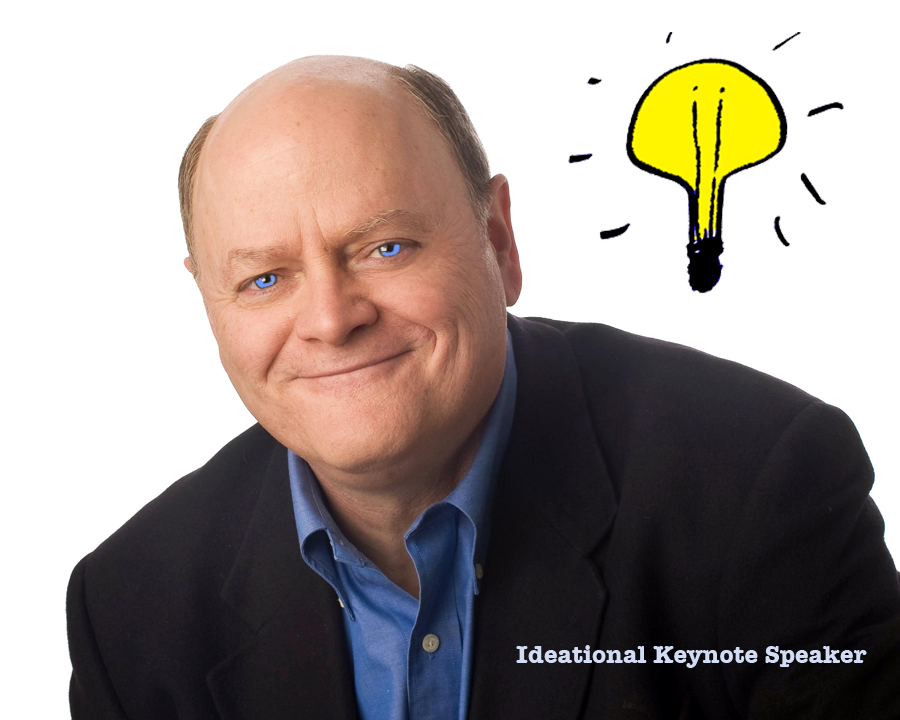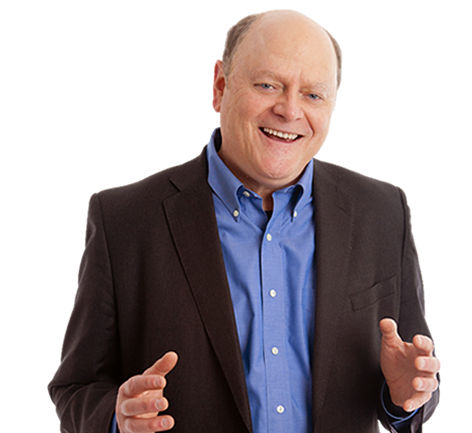 I do keynotes on creativity and innovation topics — and this is not something I hide. It’s all over my website and I do my best to promote my speaking on FaceBook, Twitter, LinkedIn, and in my blog postings. So, it’s not unusual for me to be confronted — at a cocktail party or a business meeting — with the comment: So you’re a “Motivational Speaker.”
I do keynotes on creativity and innovation topics — and this is not something I hide. It’s all over my website and I do my best to promote my speaking on FaceBook, Twitter, LinkedIn, and in my blog postings. So, it’s not unusual for me to be confronted — at a cocktail party or a business meeting — with the comment: So you’re a “Motivational Speaker.”
It’s a fair observation, but it’s really…inexact when it comes to describing what I actually do. It’s not Wrong, but there’s more to my speaking than motivation. My talks are about ideas, so really, I’m an Ideational Speaker.
Yes, I make an effort to motivate people to be more creative and innovative. So, I do hope I’m motivational, even inspirational. Sometimes I actually achieve this — if I’m to believe my evaluations.
However, my first goal is not to motivate. Motivation is something that tends to arrive quickly in the moment, and it tends to leave at about the same speed. This is not always so, but generally, the flames of motivational passion die quickly when it comes to the hard reality of implementation. Part of the problem is if audiences don’t have a vehicle for their new found passion — it’s going to flame out. The most motivational speaker I’ve ever seen was Dewitt Jones. I cried during his presentation, he was truly amazing, and the visuals were awesome. Did he change a single thing that I do in my life? I have to say no. This is no bad rap on Jones, his goal (I believe) wasn’t to change my behaviour, his goal was to entertain.
It’s a bit like the difference between persuasion and conviction. A good salesman can persuade you of something. Then, another good salesman can persuade you of something else. Conviction is a different story. Conviction sticks because it’s a belief.
Now, if I can inspire or facilitate people to have an idea, a specific idea, that helps them achieve something they want, I feel like I’ve really done something positive. Something lasting and beyond momentary motivation, I seek to impact real life behaviour. I want my audiences to have more ideas for new products, processes, services, and businesses when I speak. And I want people to write them down.
I’ve spent my life learning and practicing how to do this. I know how to get people to have more and better ideas.
Ideas, particularly ones that are specific and focused, have a passion-surviving tendency. If you write an idea down you’ve actually taken a baby step, an action step, and that’s the first push of a stone down a hill, it creates momentum. A compelling idea staring at you from a notebook begs for more action steps. If I can get people to think and ideate more about their challenges, I’ve done something really good, because this is a behaviour that lives on in people’s heads and hearts. If I can motivate people to have ideas and to continue trying to have ideas — and write them down — I’ve accomplished my goal as a speaker.
So, from now on, I’m calling myself an Ideational Speaker. Yes, you’ll laugh, you’ll cry, when I speak. Yes, I’ll give you cutting edge business tools and techniques. I’ll provide insights about your industry. AND, if I’m doing my job, you’ll write down an idea that could change your life.
I seek to motivate people to have more and better ideas to address their challenges. If you want a motivational speaker there are plenty of people who can tell heart warming stories, including me. If you (and I mean you, meeting planners, MPI types, event professionals) want your group to have actionable ideas — please call Gregg Fraley, the Ideational Speaker.


